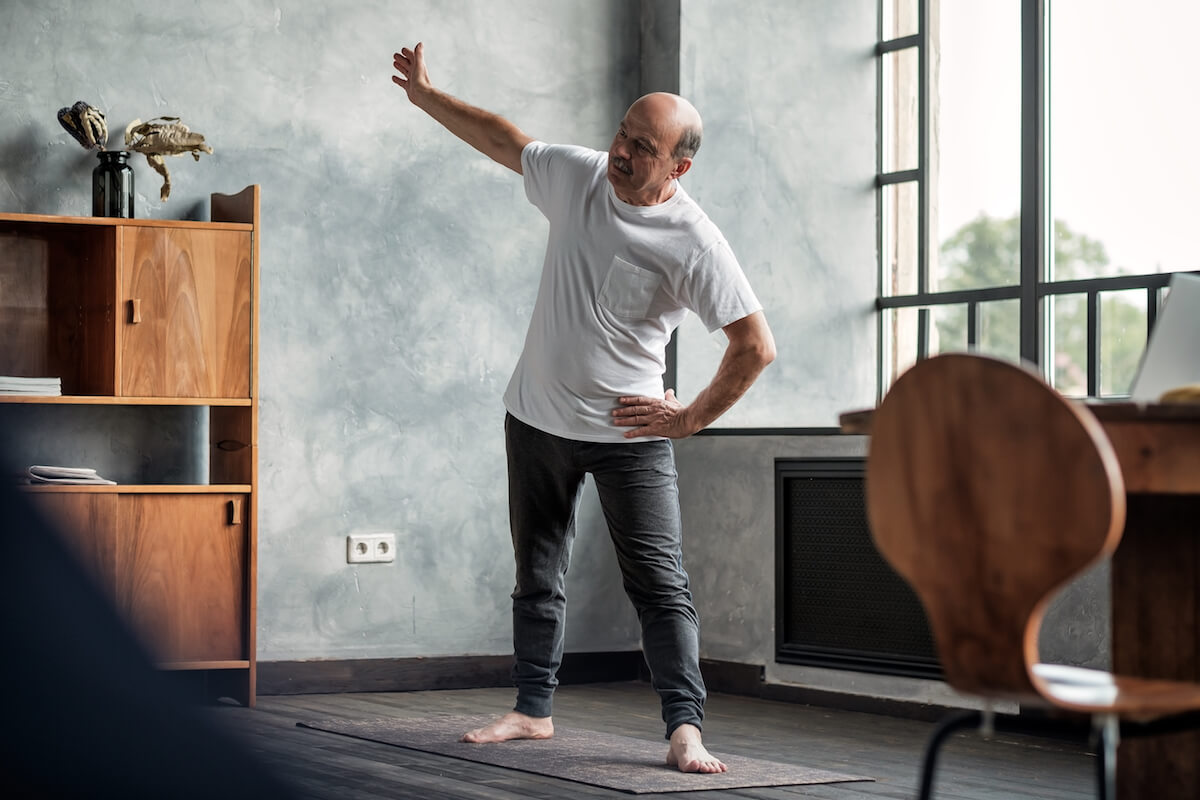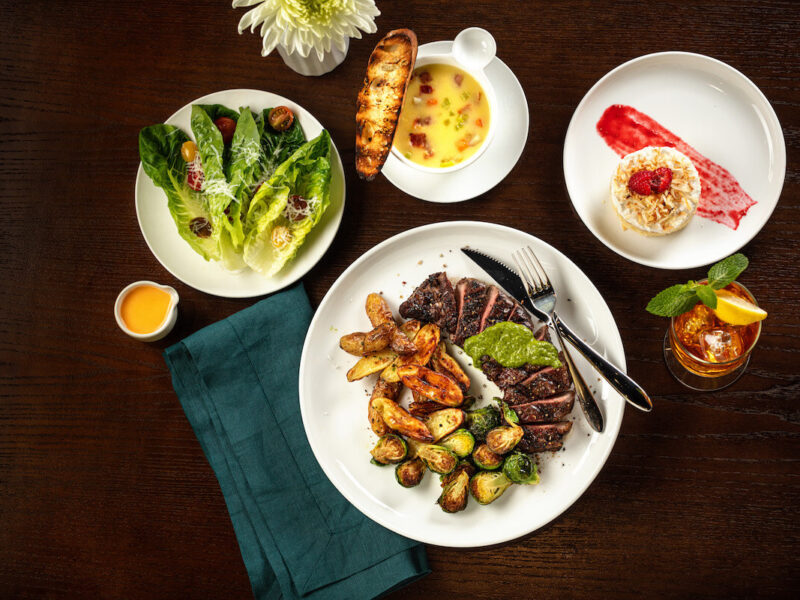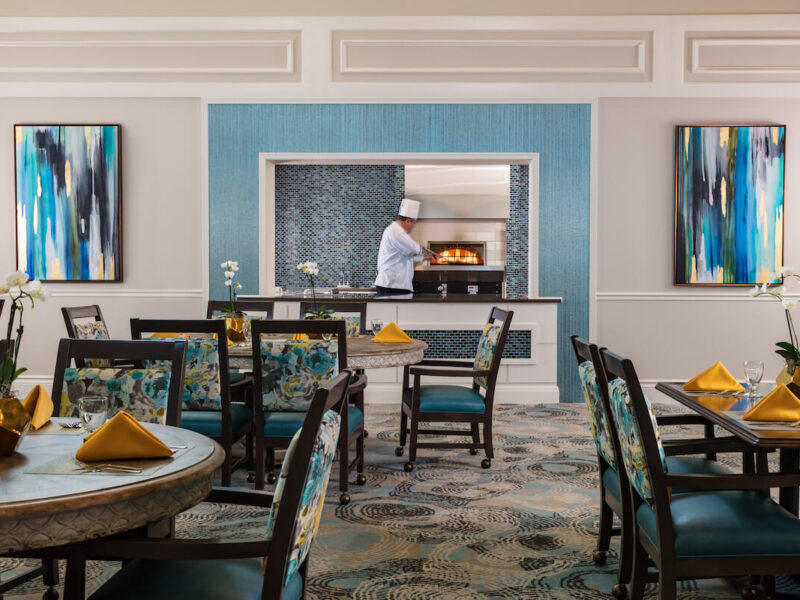5 Useful Tips for Preventing Falls at Home

Independence is important to all of us. As we grow older, however, that independence could feel as though it is slipping away. The body goes through significant changes with age, leading to health conditions that make falling more likely. These falls are a major cause of injuries in older adults, replacing independence with the fear of falling.Seniors hold the power to keep their self-sufficiency by implementing safe practices, and performing fall prevention techniques is one of the most important.
HarborChase Senior Living understands the importance of independence. We do everything we can to help our residents maintain their independence, and we would like to aid in preventing falls at home by sharing some useful tips for you or your loved one.
1. Stay Active
Gentle exercise does wonders in keeping the body functioning properly. Activities such as walking, swimming, biking, and dancing help keep the body in shape. Improving balance, strength, coordination, and flexibility go a long way in preventing falls.
If seniors are active regularly, not only will they be physically stronger, they will also be more confident in movement. Fear to walk to the mailbox or to get into the bath or shower is minimized because these activities are performed on a regular basis.
Encourage your loved one to keep moving and talk to a doctor to work out a personalized exercise plan.
2. Keep a Clean Living Space
Clutter and messes wreak havoc when attempting to maneuver through a home. Keeping a clean living space is an easy way to help in fall prevention.
Repair Loose Flooring
- Secure all rugs
- Fix loose carpeting
- Repair wood flooring
Secure Electrical Cords and Wires
- Cords to electronics, such as television, disc players, and so on, should be tucked away
- Telephone cords are neatly secured
- All pathways are free of wires of any kind
Immediately Clean Spills
Food and beverage spills make the surface slippery and less stable. Cleaning spills as soon as they happen can aid in preventing an unnecessary fall.
Keep Major Walkways Clear
Any object has the potential to become an obstacle. Removing anything in a high traffic area that can cause a person to trip is a great start to fall prevention.
Ensure the Home Has Well-Lit Paths and Stairways
Seeing where one is placing a foot is of utmost importance, especially to older adults. Providing lit walkways allows your loved one to see potential obstacles and to feel confident in his or her step.
Providing a clean, clutter-free home may seem simple and obvious, but it is of vital importance.
3. Schedule an Appointment with a Doctor
Existing medical conditions could play a factor in fall risk. For example, conditions that affect the ears disturb balance, and ailments influencing the eyes could impair vision. A doctor knows how serious these conditions are and can advise how best to improve the situation.
Furthermore, medication side effects can increase the risk of falling. These side effects include:
- Blurry vision
- Balance and coordination
- Feeling weak
- Lightheadedness or dizziness
- Numbness in legs or feet
A doctor will evaluate these side effects and take action to decrease the risk of falling. It is important for your parent or loved one to let a healthcare professional know if they are experiencing any of the above symptoms so the doctor can properly assess the situation.
4. Consider Assisting Devices
These tools are installed to help provide stability; however, implementing assisting devices in the home works two ways: as a preventative measure and as a safety net.
Some of these devices include:
- Handrails on stairways
- Raised toilet seats
- Grab bars
- Non-slip tread
- Walk-in bathtubs
When your parent or loved one utilizes these devices diligently, he or she drastically decreases the likelihood of a fall.
Unfortunately, preventing falls is not always an option, but seniors can save themselves. When a fall is in motion, these assisting devices provide a safety net. If your parent or loved one has something to grab ahold of, they can catch themselves and potentially avoid the fall.
5. Wear Appropriate Attire
Loose clothing can easily get caught on furniture and door handles. Wearing clothes that fit properly and close to the body can assist in preventing falls.
Footwear is another thing to be mindful of. Shoes that slip on and off easily could cause tripping. In addition, the tread on the shoe is also important. Be sure your parent or loved one wears proper shoes that stay in place and grip the ground and floor well.
Not all falls can be prevented. There are medical conditions that increase the likelihood of falls in seniors; however, utilizing these precautions is a great way to aid in the prevention of falls at home and helps seniors maintain their independence.
If you are looking for more useful tips regarding senior health, please visit our HarborChase Senior Living blog. If you are considering senior living for your parent or loved one, we encourage you to find a HarborChase Senior Living community near you!
Tags: Independent Living, Safety
December 17, 2024
Harbor Retirement Associates is revolutionizing the senior living market with fresh, farm-to-table fare through their on-site restaurants.
December 17, 2024
From organic, fair-trade coffee to locally sourced ingredients, Harbor Retirement Associates' commitment to quality and sustainability sets new standards in senior dining.

